Research Team
Soil: the most complex ecosystem on the planetResearch Team
Soil: the most complex ecosystem on the planet
J. Ben Brown
Staff scientist at Lawrence Berkeley National Laboratory.
Department Head for Molecular Ecosystem Dynamics at Lawrence Berkeley National Laboratory, USA, Chair of Environmental Bioinformatics at the University of Birmingham, UK, Adjunct Faculty in Statistics at UC Berkeley, and Senior Scientific Advisor for Preminon, LLC. He leads integrative analysis for the Consortium for Environmental Omics and Toxicology and is a founding member of the Microbes to Biomes Initiative, leading analysis for a project aimed at understanding host-microbiome interactions in adaption to environmental challenges. He is a member of the EcoFAB project, which aims to re-invent ecosystems biology through the innovation of reproducible bench-top ecologies.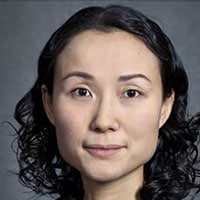
Haruko Murakami Wainwright
Research scientist at Lawrence Berkeley National Laboratory.
Research scientist at Lawrence Berkeley National Laboratory. She earned Ph.D. at University of California, Berkeley. She is an expert in Bayesian spatial statistics, multiscale data integration and uncertainty quantification. She has worked on various research topics, including nuclear waste, groundwater contamination, permafrost hydrology, ecosystem carbon cycling, and deep-subsurface CO2 storage. She is currently the lead of Environmental Resilience Program in Earth and Environmental Sciences Area.
Jay McEntire
Manager of Glennoe Farms, Chairman of Utah Gas Corp., and Chairman of Asset Revitalization Solutions
Experienced entrepreneur in agriculture, software, banking and energy. Serves as Manager of Glennoe Farms, Chairman of Utah Gas Corp., and Chairman of Asset Revitalization Solutions, a distressed real estate fund. Former roles include CEO of Cogency Software Inc., hedge fund accounting and risk management platform, and CEO of ProTrader Group, an electronic equity trading platform acquired by Instinet Corp. BSBA in Finance from University of Arkansas, study abroad at Universitat Salzburg, Austria, and Harvard Business School’s AMP/ISMP.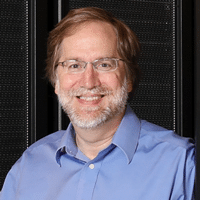
Daniel Jacobsen, PhD
Machine Learning Architect
Chief Scientist for Computational Systems Biology Oak Ridge National Laboratory, focusing on mathematical, statistical and computational methods applied to biological datasets to yield new insights into complex biological systems.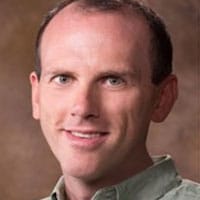
Benjamin R. K. Runkle
Assistant professor, Department of Biological & Agricultural Engineering, University of Arkansas.
His research is focused on the connections between the carbon and water cycles in agricultural environments, including the rice fields of Arkansas’s Delta region. This field-based research involves long-term measurements of key environmental fluxes. This research also provides the basis for process studies and computer modeling approaches to environmental systems. B.S.E. in Civil & Environmental Engineering from Princeton University, MS and Ph.D. in Civil & Environmental Engineering from the University of California, Berkeley and Postdoctoral Research Scientist at the Institute of Soil Science, University of Hamburg, Germany.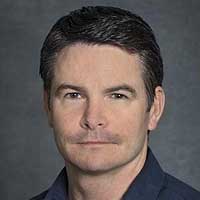
Dr. Eoin Brodie
Deputy Director of Climate and Ecosystems Sciences at Berkeley Lab
Dr. Brodie is a microbiologist with over 20 years experience studying the feedbacks among soil microorganisms and the physical, chemical properties of the environment. Brodie is a leader in using molecular biology approaches to reconstruct genomes and predict microbial functional traits. He uses stable-isotope tracers to quantify microbial metabolism and trait-based models to predict the role of soil microorganisms in soil biogeochemistry and plant productivity.
Susan Hubbard
Associate Lab Director for Earth & Environmental Sciences
Dr. Hubbard leads a premier group of ~500 scientists with expertise in climate science, terrestrial ecosystem science, environmental and biological system science, fundamental geoscience, and subsurface energy resources. Susan’s research focuses on quantifying how terrestrial environments function, with a particular emphasis on using geophysical methods to explore how hydrological, geochemical and biological processes interact to govern larger scale system behavior. Susan is Fellow of the Geological Society of America (GSA) and American Geophysical Union (AGU), is a recipient of the Society of Exploration Geophysicists (SEG) Frank Frischknecht and Hal Mooney Awards, and has been recognized as a Birdsall Dreiss Distinguished Lecturer.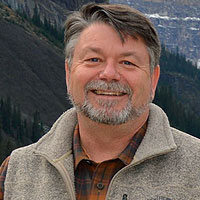
Dr. Marty Matlock
Executive Director of the University of Arkansas Resiliency Center and Professor of Ecological Engineering
He received his Ph.D. in Biosystems Engineering from Oklahoma State University, is a registered professional engineer, a Board Certified Environmental Engineer, and a Certified Ecosystem Designer. Dr. Matlock has co-authored four books and more than 50 peer-reviewed manuscripts. Dr. Matlock’s research focuses on technologies and processes to increase the resilience of ecosystem services in human-dominated ecosystems. His focus is on the interface of food, water, and community systems. He works with ecologists, engineers, architects, social and political scientists, agricultural scientists, economists, and business leaders to create new understanding and framing of vexing human challenges. His interdisciplinary work has been recognized by the leading organizations in agriculture, engineering, architecture, landscape architecture, and sustainable design with over 30 national and international awards. He coordinates academic, research, outreach, and facilities efforts in sustainable and resilient systems across the University of Arkansas campus. He serves on the USEPA Science AdvisoryCommittee for Agriculture, previously served on the US Secretary of Agriculture’s Committee for the 21 st Century, is Chairman of the Cherokee Nation Environmental Protection Commission, and serves as sustainability science advisor for 12 food and agricultural product companies.
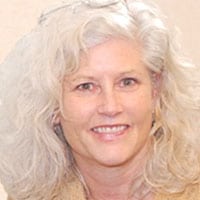
N. Louise Glass
Director of Environmental Genomics and Systems Biology Division at the Lawrence Berkeley National Laboratory
Director of Environmental Genomics and Systems Biology Division at the Lawrence Berkeley National Laboratory and a Professor in the Plant and Microbial Biology Department at the University of California-Berkeley. Ph.D. from the University of California-Davis. An international leader in systems biology approaches to fungal genetics, genomics and applications of fungi to bioenergy, biofuels and the environment. Fellow of the American Association for the Advancement of Science (AAAS) and a fellow of the American Academy of Microbiology (AAM) and the Mycological Society of America (MSA).
Nicola Falco
Postdoctoral Fellow at the Earth & Environmental Sciences, Lawrence Berkeley National Laboratory.
Nicola does research in remote sensing image analysis and processing with applications in environmental monitoring and climate change. His interests include multi- / hyper-spectral image analysis, data fusion and applied machine learning for land surface characterisation and estimation of vegetation’s structural and biophysical properties. BS and MS in Telecommunication Engineering, Università degli Studi di Trento, Ph.D. (joint degree) in Electrical and Computer Engineering, University of Iceland, and in Information and Communication Technology, Università degli Studi di Trento.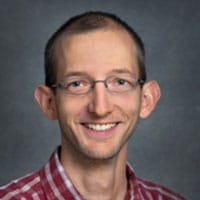
Baptiste Dafflon
Research Scientist
Research interests include environmental geophysics, hydrology and geochemistry. Current projects involve quantifying subsurface and surface processes and co-variability, hydrogeophysical data integration, development of unmanned aircraft system imaging to monitor vegetation dynamic, hydro-thermal processes and soil properties. BSc and MSc, Geophysics, ETH Zurich, Switzerland, PhD, Geophysics, Institute of Geophysics, University of Lausanne, Switzerland
Terry Spurlock
Assistant Professor/Extension Plant Pathologist at University of Arkansas Division of Agriculture.
His lab focuses on diseases of row crops in SE Arkansas with the major focus being to aid the farmers of the region in proper disease management and decision making to maximize production value. Crops of interest include soybeans, rice, corn, grain sorghum, wheat, and cotton. BS in Agronomy and Crop Science from Texas A&M University, MS in Plant Pathology and Ph.D. in Plant Sciences from the University of Arkansas.
Richard Ham
Associate Director of the Master of Science in Operations Management and the Master of Science in Engineering Management at the University of Arkansas.
Associate Director of the Master of Science in Operations Management and the Master of Science in Engineering Management at the University of Arkansas. Retired United States Air Force and the Department of Homeland Security where he held various regional and national leadership roles. He is a recognized subject matter expert in Homeland Security, consulting domestically and internationally for the United States Government. Dr. Ham teaches courses in leadership, global competition, Homeland Security and Unmanned Aircraft Systems (drones). B.S. Social Psychology, Park College, M.A.S. Aeronautical Science, Embry-Riddle Aeronautical University, Ed.D. University of Arkansas – Little Rock.
Jackson Cothren
Assistant professor, Department of Biological & Agricultural Engineering, University of Arkansas.
Director, Center for Advanced Spatial Technologies, and Professor of Geosciences, University of Arkansas. His research interests include digital photogrammetry, sensor modeling from a variety of platforms, multi-image matching, reliability analysis in Gauss-Markov and Gauss-Helmert adjustment models. BS in Mathematics from the United States Air Force Academy, MS and Ph.D. in Geodetic Science and Surveying from Ohio State University.
Nathan Slaton
Professor and Assistant Director, Agricultural Experiment Station, University of Arkansas System Division of Agriculture.
Dr. Slaton’s research focuses on fertilizer evaluation and development of crop fertilizer recommendations using plant and soil analyses. He directs two analytical laboratories that specialize in agricultural analyses and provide plant, manure, and soil testing services and fertilizer recommendations. Dr. Slaton received a B.S. from Murray State University and M.S. and Ph.D. degrees from the University of Arkansas.
Craig Ulrich
Scientific Engineering Associate at Lawrence Berkeley National Laboratory.
Current research interests include the fields of environmental geophysics, hydrology, and contamination including characterizing the arctic tundra with DC resistivity, ground penetrating radar, electromagnetics, and soil identification/characterization. BS in Geology from Northwest Missouri State University and MSc in Environmental Geology from Rutgers University.“By understanding how microbes work and modifying the environments where they function, we can eventually engineer microbial communities to enhance soil productivity. What’s more, Berkeley Lab’s research is showing that healthy soils are more resilient to system shocks such as climate change, drought, and insects.”
Ben BrownAR1k - MISSION
Sustainable, Profitable Agriculture Through Research
The AR1K Solution And Objectives:
Scientists at the Department of Energy’s Lawrence Berkeley National Laboratory, working with the University of Arkansas and Glennoe Farms, are bringing together molecular biology, biogeochemistry, environmental sensing technologies, and machine learning, to help revolutionize agriculture and create sustainable farming practices that benefit both the environment and farms. If successful, we envision being able to reduce the need for chemical fertilizers and enhance soil carbon uptake, thus improving the long-term viability of the land, while at the same time increasing crop yields.
Through its pilot project in 2017, the team established a large-scale field research site which has produced providing extensive datasets and actionable insights for future land management strategies. The role of microbes in the health of the soil is at the center of this research.
Decreased Economic Risks
Revolutionize agriculture and create sustainable farming practices that benefit both the environment and farms.
Reduction of Inputs
Diminish the need for chemical fertilizers and enhance soil carbon uptake, thus improving the long-term viability of the land.
Improved Value of Crops
Provide farmers with methods for tracking sustainability practices that can lead to increased marketing opportunities.
Auxiliary Value Streams for Farmers
Data-driven farming practices allow farmers to quickly attribute positive and negative factors and uncover additional opportunity.
GET IN TOUCH
AR1K
Field Site
52 Crum Lane
Humphrey, AR 72073
Press Inquiries
Julie Chao
General Inquiries
info@ar1k.org
GET IN TOUCH
AR1K
Field Site
52 Crum Lane
Humphrey, AR 72073
Press Inquiries
Julie Chao
General Inquiries
info@ar1k.org
